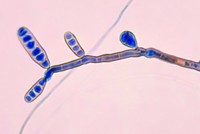Advertisement
Grab your lab coat. Let's get started
Welcome!
Welcome!
Create an account below to get 6 C&EN articles per month, receive newsletters and more - all free.
It seems this is your first time logging in online. Please enter the following information to continue.
As an ACS member you automatically get access to this site. All we need is few more details to create your reading experience.
Not you? Sign in with a different account.
Not you? Sign in with a different account.
ERROR 1
ERROR 1
ERROR 2
ERROR 2
ERROR 2
ERROR 2
ERROR 2
Password and Confirm password must match.
If you have an ACS member number, please enter it here so we can link this account to your membership. (optional)
ERROR 2
ACS values your privacy. By submitting your information, you are gaining access to C&EN and subscribing to our weekly newsletter. We use the information you provide to make your reading experience better, and we will never sell your data to third party members.
Safety
Congress Investigates Tainted Heparin
Lawmakers say FDA's ability to perform foreign inspections is woefully inadequate
by Glenn Hess
March 25, 2008
Capitol Hill lawmakers have launched an investigation into the events leading up to the distribution of contaminated batches of the blood-thinning drug heparin.
The lots of heparin, whose active pharmaceutical ingredient (API) was made in China, have been linked to multiple deaths and hundreds of serious allergic reactions in the U.S. FDA has identified the contaminant as oversulfated chondroitin sulfate, a chemical that does not occur naturally (C&EN, March 24, page 13).
A House Energy & Commerce Committee panel plans to hold hearings in April to examine issues surrounding the matter. Congressional investigators have been sent to Scientific Protein Laboratories (SPL) in Waunakee, Wis., to interview company officials.
SPL co-owns a production facility in Changzhou, China, and is a supplier of heparin API to Baxter Healthcare and B. Braun Medical, two U.S. companies that make and distribute the finished product. Baxter recalled nearly all of its heparin in February, and B. Braun said it was recalling 23 lots of the drug as a precautionary measure on March 21. There have been similar recalls of Chinese-sourced heparin in Germany, Japan, and several other countries.
"This latest development underscores our concerns that FDA does not have a robust enough presence overseas in conducting inspections in plants that make drugs for the U.S. market," Energy & Commerce Committee Chairman John D. Dingell (D-Mich.) says. "Ongoing surveillance inspections are critical if FDA is to find shortcomings."
Rep. Bart Stupak (D-Mich.), who leads the committee's panel on oversight and investigations, says contaminated heparin is the second instance in the past year of "what appears to be intentional adulteration of food and drugs coming into this country from China." Melamine was detected in imported Chinese pet food last year.
"We need better processes for inspecting all foreign-made food and drugs, but at a minimum we must address the China issue now," Stupak says. "FDA should establish a schedule by which all Chinese firms exporting to the U.S. that have not been inspected in the past three years are inspected in the next three."
Stupak says FDA officials should be prepared to submit such a plan to Congress when they testify before his subcommittee next month to assure the public that steps are being taken to ensure the safety of food and drug imports.
"The sad reality is that FDA's inability to inspect foreign facilities has put American lives at risk," Stupak remarks. "Our hearings will evaluate what went wrong leading up to the heparin recall and the role increased overseas inspections by FDA could play in preventing future incidents."
The Chinese facility where the heparin API was made had never been inspected by FDA because of a database error in which the agency confused the factory's name with another that already had U.S. approval, health officials said last month (C&EN, Feb. 25, page 8).





Join the conversation
Contact the reporter
Submit a Letter to the Editor for publication
Engage with us on Twitter